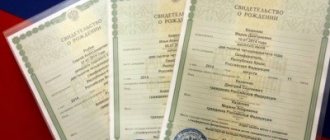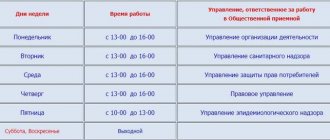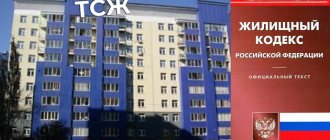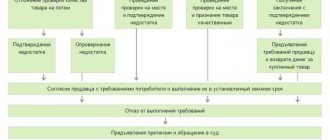All work of Rospotrebnadzor is regulated by Government Decree No. 322 of June 30, 2004. It states that this organization exercises control over the quality of production, provision of services, as well as compliance with sanitary and epidemiological standards of entities whose activities are related to consumers. What does Rospotrebnadzor check, what could be the consequences if violations are found?
What is the Rospotrebnadzor organization?
Rospotrebnadzor is a government body that monitors the quality of work and services provided by enterprises, organizations and other institutions that directly interact with consumers. The responsibilities of Rospotrebnadzor include monitoring:
- for compliance with the legislative norms of the Russian Federation on the protection of consumer rights;
- sanitary and epidemiological conditions;
- for the sale of certain types of goods;
- for the creation of the country's food reserve;
- receipt of goods across state borders;
- radiation measurements;
- licensing.
Attention is paid to companies and enterprises that are engaged in production involving the use of substances that can cause infections. In addition, those who work with sources of ionizing radiation are under supervision.
Types of checks
As for the types of inspections, they are scheduled and unscheduled. Each of them is endowed with its own characteristics, but all of them are regulated by legal norms and are mandatory for all entities whose activities are directly related to consumers.
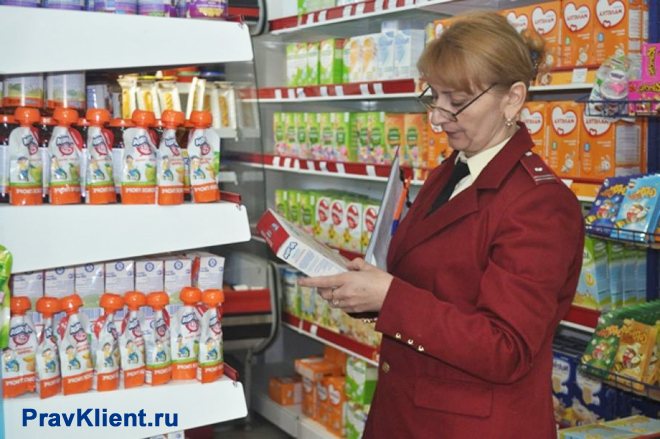
Planned
It is carried out according to the established schedule, which is determined depending on the type of activity of the person being inspected from the moment of its formation. And the frequency of visits depends directly on this, unless there are any complaints.
Unscheduled
Regardless of how long a particular enterprise has been operating, an unscheduled inspection can be carried out at any time if a signal of a violation is received from consumers.
Visiting and documentary
They directly determine the very procedure of the relationship between the inspection inspector and the business. In this case, an employee of Rospotrebnadzor can personally visit the person being inspected or request to provide the necessary documents for examination at his workplace.
Before any inspection, the inspecting civil service must notify management of its intention to attend. To do this, a written notification is sent to the manager about the date of arrival of the inspectors. The difference is that for a planned visit you need to report three days in advance, and for an unscheduled visit one day in advance, but this must be done without fail.
Who can be checked and on what grounds
The regulations for the activities of Rospotrebnadzor, approved by the Government Resolution, provide for the inspection of all entities that provide various services to the population. Therefore, control is carried out in all organizations, for example:
- pharmacies;
- food and non-food stores (clothing, shoes, etc.);
- catering facilities - cafes, bars, restaurants, school canteens;
- organizations providing sanitary, hygienic and household services (housing and communal services);
- educational premises of educational institutions, preschool educational institutions (kindergartens), schools;
- clinics;
- women's beauty salons;
- the same applies even to libraries, where the noise level and cleanliness of the premises are checked;
- cultural centers;
- banks, insurance companies.
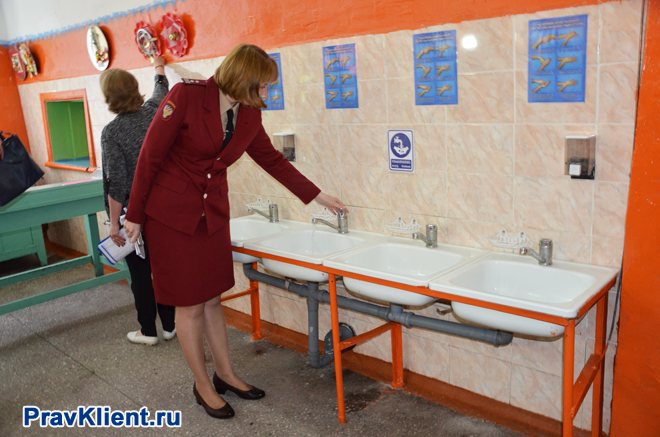
One of the main reasons is the mandatory scheduled inspection by the Rospotrebnadzor service, carried out according to the designated plan. But there is another type of control that can be carried out unplanned. The reason for the inspector to “arrive” will be an incident that occurred at the enterprise or organization. The reasons in this case may be:
- consumer complaint about the inadequacy of the services provided or rendered;
- complaint from a local government representative;
- expiration of the deadlines provided for eliminating violations;
- the beginning of the introduction of a new type of activity;
- the appearance of information in the media about violations of sanitary and epidemiological standards, the sale of low-quality goods, and the provision of inappropriate services.
Complaints submitted anonymously are not taken into account by Rospotrebnadzor. There will be no verification, since in this form the claim does not constitute a violation. An exception may be if the information poses a threat to the life and health of the population, as well as state security.
Who does Rospotrebnadzor control? What is checked in stores and medical institutions?
All medical organizations undergo inspections by Rospotrebnadzor. Law No. 294-FZ of December 26, 2008 establishes the procedure for conducting inspections, as well as the rights and obligations of their participants.
The basis for any scheduled inspection is the annual plan, which is formed by territorial bodies or departments of this body. It includes all enterprises and individual entrepreneurs at which such an inspection will be carried out.
After the inspection, the inspectors will begin to study the documents from paragraph 13 of the order to conduct a scheduled on-site inspection.
How is the check done and what is checked?
It is worth noting that scheduled inspections are carried out according to the approved plan at the designated time. To find out when the inspection body is planning a visit, just go to its official website and view the inspection schedule online. Such information is publicly available, so finding it out will not be difficult. The electronic schedule can also be found on the official website of the prosecutor’s office, without which the legality of the control entrusted to Rospotrebnadzor will be considered unlawful.
Any inspection by an inspection body begins with a study of the package of documents available to the enterprise, organization, or institution.
- Depending on the specifics of those being audited, documentation may be required that is directly related to the subject of the audit.
- In addition, working conditions, the level of qualifications of workers, and direct adherence to quality are studied, so during the inspection process, product samples can be taken, test purchases can be made, relevant analyzes and measurements can be taken.
- One of the important points is the compliance of the measures taken with their documentary confirmation in the inspection order.
After completion, the inspector must necessarily draw up a special conclusion (act), which displays the result of the conduct. It is compiled in two copies. One remains with the inspector, the other is given to the manager of the inspected enterprise or organization. In addition, depending on the nature of the inspection, other documentation may be drawn up, for example, when taking samples or selecting a specific product. Separate papers are drawn up about this.
What exactly can they check:
- documents confirming the legitimacy of the activity;
- availability of sanitary records for personnel, if required by the specifics of the work;
- sanitary and hygienic standards;
- consumer corners, complaint books;
- compliance with the temperature regime in the premises;
- rules and conditions for storing products;
- product certificates;
- sanitary and epidemiological inspection logs;
- price lists, catalogs, menus.
One of the significant documents that the person being inspected must certainly have is the disinfection equipment logbook. In its absence, management faces a fine of 20,000 rubles. But here it is worth noting that this document must be certified by Rospotrebnadzor in advance. As already noted, depending on the specifics of the activity, a list of documents to be checked, actions and work performed is formed.
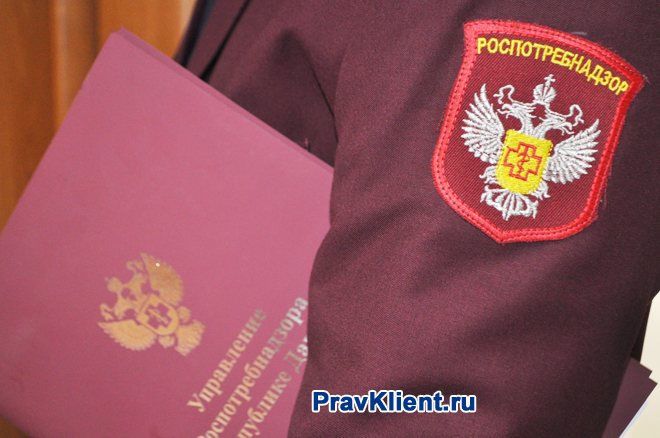
The head of the inspected enterprise or organization must be present, this also applies to the in-house lawyer. But, in addition to this, the manager has the right:
- receive explanations from the inspector that are directly related to the subject of the inspection;
- It is mandatory to enter data in a special journal indicating the start and end dates of the inspection;
- familiarize yourself with the results of the inspection and, if you disagree, add your objection to the act being drawn up;
- appeal the actions of inspectors in court or a higher authority.
It is important to remember that the inspection must be carried out in accordance with the subject of the inspection indicated in the documents. If experts demand to check something additionally, then their actions are not legal, so the manager has the right to refuse them this and appeal accordingly.
In addition, a company, enterprise, or organization can be inspected based on the same complaint only once in a certain time. That is, if several complaints are received regarding the same issue within a month, an unscheduled inspection can be carried out no earlier than three months from the date of the previous visit. You can appeal the actions of the inspectors within 10 days after signing the conclusion, which indicated the results of the inspection with the violations found.
A very important rule for maintaining the legality of an inspection is the compliance of all documents on the part of the Rospotrebnadzor inspector, for example, the order (order) indicates the expert who must conduct the inspection, so it is the specified employee who must inspect. If the order specifies one person, and another person conducts the check, then this is considered a direct violation, and the results will be declared invalid.
What products are on the blacklist?
We are publishing the results of the Roskontrol examination: products that you can safely buy and those that contain preservatives and E. coli.
It is not usually expensive products that are counterfeited, but rather those that are in demand. Manufacturers often deceive customers by not indicating the full composition of the product. Instead of expensive raw materials, they use cheaper substitutes.

Alexander Borisov
Co-chairman of the Roskontrol Consumer Union Alexander Borisov confirmed that the quality of products in Russian stores is declining. There are three reasons for this:
- In 2010, mandatory certification of food products was abolished in Russia and declaration of conformity was introduced. That is, the release of a product does not require the participation of independent expertise and laboratory research.
- Sanctions. With less competition, new manufacturers and new products flooded into the market. Certification bodies have ceased to cope with the sharply increased volumes of new products.
- In modern economic conditions, manufacturers have been forced to significantly reduce the quality and sometimes safety of their products.
You can only rely on yourself. Read labels carefully and watch what you put in your grocery cart! The independent non-profit organization Roskontrol helps buyers with this. It conducts product research through donations from companies and people, among whom there are no interested parties.
Representatives of the organization buy all goods like ordinary consumers - through retail stores.
Then they are anonymized and the samples are sent to experts. If tests show that a product poses a threat to human health or the manufacturer is deceiving the buyer, the product is blacklisted.
We chose the most popular ones from all the products that Roskontrol examined: dumplings, sour cream, yogurt, chocolate, crab sticks, sausage. Let us remind you that in issue No. 46 of November 18, we also published the results of testing popular products. If you want to find out the results of all Roskontrol research, go to roscontrol.com.
sausage
Successfully passed the tests:
"Borodin's Meat House"
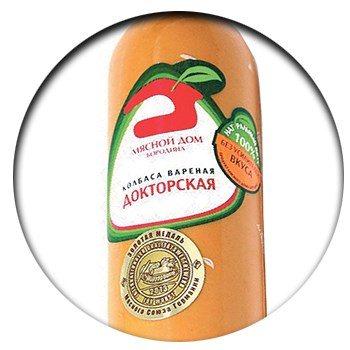
Safety - 62% Naturalness - 65% Healthiness - 30% Tasting - 80%
Advantages: tasty, safe, soy-free, no preservatives.
Disadvantages: high price, contains chemical food additives - color fixatives, antioxidants.
"Mortadel"
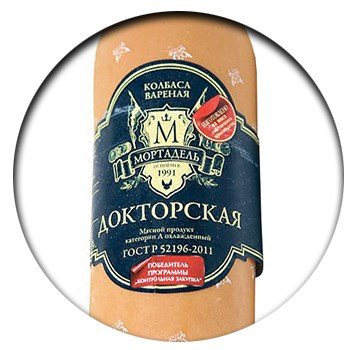
Safety - 61% Naturalness - 50% Healthiness - 11% Tasting - 66%
Advantages: safe, no preservatives, no soy, no starch.
Disadvantages: contains collagen animal protein (in small quantities), contains chemical additives.
"Velcom"
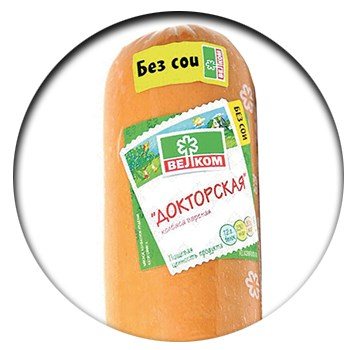
Safety - 64% Naturalness - 40% Healthiness - 15% Tasting - 66%
Advantages: safe, soy-free, no preservatives, moderately salted.
Disadvantages: contains many chemical additives; Difficult to read markings.
Blacklisted:
"CampoMos"
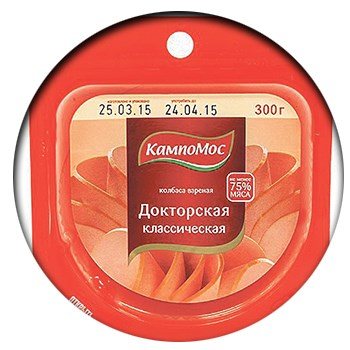
Danger level: medium.
The manufacturer uses the invented name “Doctor’s Classic”, but the product does not meet the composition and quality requirements of GOST R 52196−2011.
"Cherkizovsky MPZ"
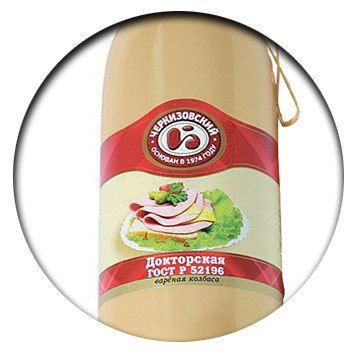
Danger level: high.
Sorbic acid, a preservative, was detected. An excess of the mass fraction of phosphorus was also revealed. This is a non-compliance with safety requirements.
"Ostankino"
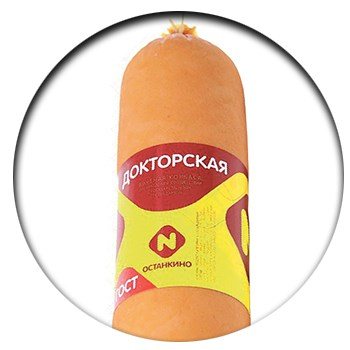
Danger level: high. Does not meet safety requirements. A preservative has been detected - benzoic acid. The mass fraction of phosphates is also exceeded.
sour cream
Successfully passed the tests:
"Brest-Litovsk" 20%
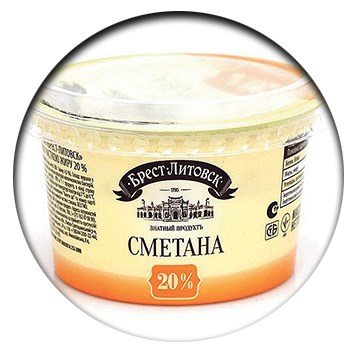
Safety - 85% Naturalness - 72% Healthiness - 52% Tasting - 72%
Advantages: safe, does not contain starch, phosphates, preservatives, antibiotics.
Cons: Contains more saturated fat than other samples tested.
"Ostankinskoe" 20%
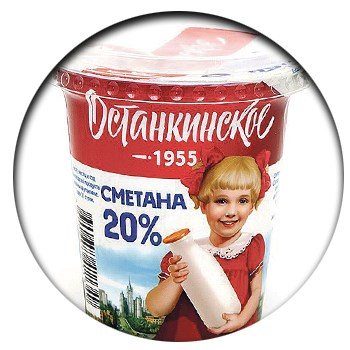
Safety - 75% Naturalness - 73% Healthiness - 52% Tasting - 75%
Advantages: safe, does not contain starch, phosphates, preservatives, antibiotics.
Disadvantages: the label shows a child, although the product is not intended for baby food.
"Prostokvashino" 20%
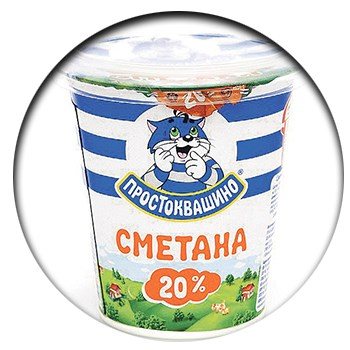
Safety - 85% Naturalness - 55% Healthiness - 53% Tasting - 86%
Advantages: no preservatives, vegetable fats or starch.
Disadvantages: most likely there are stabilizers. According to the regulations, a product with food additives cannot be called sour cream.
Blacklisted:
"Rostagroexport" 20%
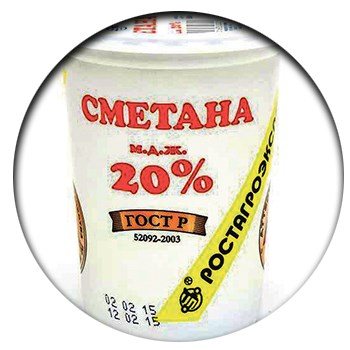
Danger level: maximum. The antibiotic streptomycin was discovered. A stabilizer has been added to the product.
"Milava" 20%
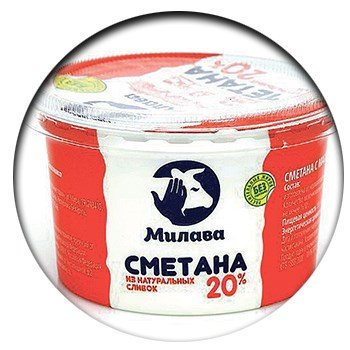
Danger level: maximum. Does not meet safety requirements: the antibiotic streptomycin was detected. The product contains stabilizers.
"Dmitrov Dairy Plant" 20%
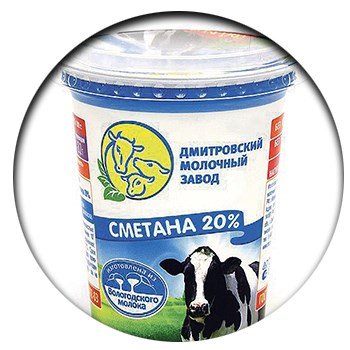
Danger level: maximum. Violation of safety requirements: the content of yeast fungi is 2000 times higher than the standard. The product contains a stabilizer.
dumplings
Successfully passed the tests:
"VkusVill"
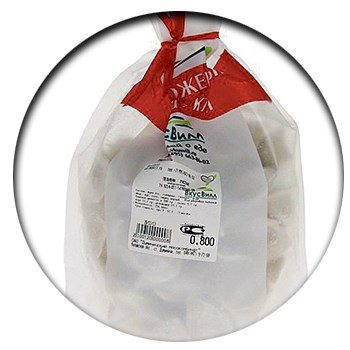
Safety - 94% Naturalness - 85% Healthiness - 69% Tasting - 60%
Advantages: safe, without vegetable protein and starch.
Disadvantages: high price, discrepancy in the amount of fat: in fact 6.7%, but the labeling indicates 11.2%.
"Siberian delicacy"
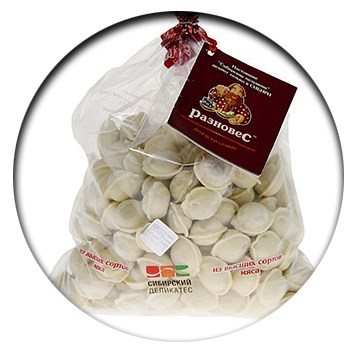
Safety - 91% Naturalness - 85% Healthiness - 50% Tasting - 72%
Advantages: safe, without soy and starch.
Disadvantages: quite high salt content, the amount of proteins and fats does not correspond to the label.
Blacklisted:
"Russian hit"
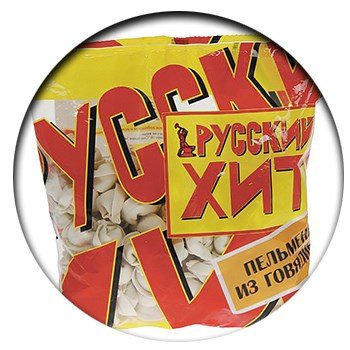
Danger level: medium.
The composition contained cartilage tissue, chicken meat and starch, not indicated on the packaging.
"Siberian Collection"

Danger level: medium. Does not meet safety requirements. Bird skins were found.
"From Palych"
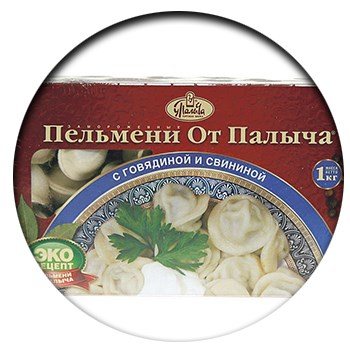
Danger level: maximum. During the examination, bacteria of the Escherichia coli group were found. The composition also contained poultry meat that was not listed in the composition.
crab sticks
Successfully passed the tests:
"Russian Sea"
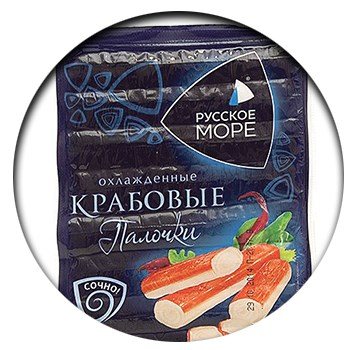
Safety - 56% Naturalness - 23% Healthiness - 22% Tasting - 76%
Advantages: safe, without preservatives.
Disadvantages: high price, dryish consistency, off-flavor.
"Santa Bremor"
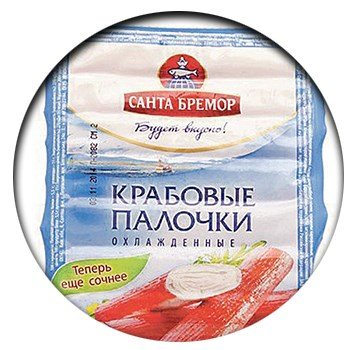
Safety - 62% Naturalness - 28% Healthiness - 14% Tasting - 58%
Advantages: safe, without preservatives.
Disadvantages: low protein, contain phosphates.
"Meridian"
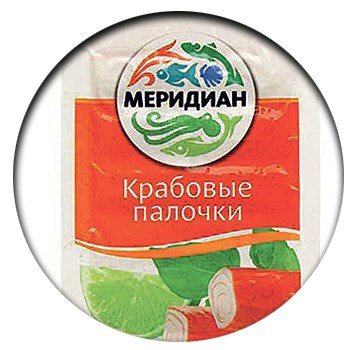
Safety - 65% Naturalness - 43% Healthiness - 9% Tasting - 72%
Advantages: microbiological parameters are normal.
Disadvantages: no indication of glutamic acid content, fat is 614% less than stated.
Blacklisted:
"Every day"
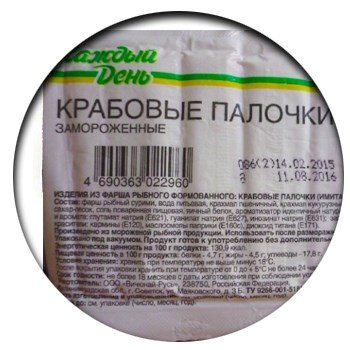
Danger level: medium. Fat is 50 times less than declared. The preservative sodium benzoate, which is not approved for the production of crab sticks, was detected.
"A'more"
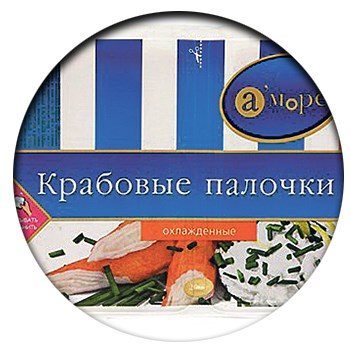
Danger level: medium. Inaccurate information about the content of proteins, fats and carbohydrates in the product. A preservative that is not approved for crab sticks was sodium benzoate.
Vici
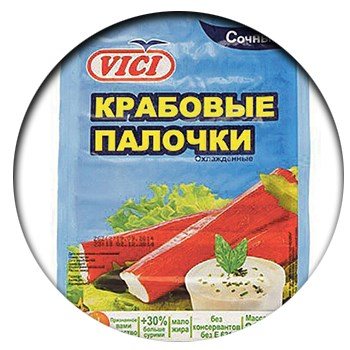
Danger level: high. The protein content is 34% less than stated. The label does not indicate added glutamic acid. Sodium benzoate, not listed in the composition, was detected.
yoghurts
Successfully passed the tests:
“Vkusnoteevo” 1.5%
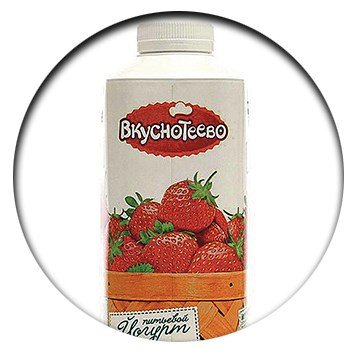
Safety - 95% Naturalness - 28% Healthiness - 68% Tasting - 85%
Advantages: contains lactic acid bacteria.
Disadvantages: Contains artificial flavor and coloring.
"Bio Balance" 1.5%
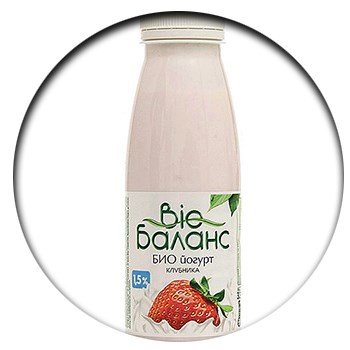
Safety - 90% Naturalness - 15% Healthiness - 69% Tasting - 85%
Advantages: contains lactic acid microorganisms and bifidobacteria, rich in protein.
Disadvantages: contains flavoring and dye.
"Frugurt" 1.5%
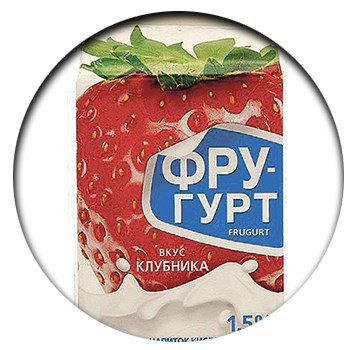
Safety - 78% Naturalness - 20% Healthiness - 70% Tasting - 60%
Advantages: contains lactic acid microorganisms, low fat, low calorie content.
Disadvantages: Contains artificial flavors and color, no fruit.
Blacklisted:
Danone 1.6%
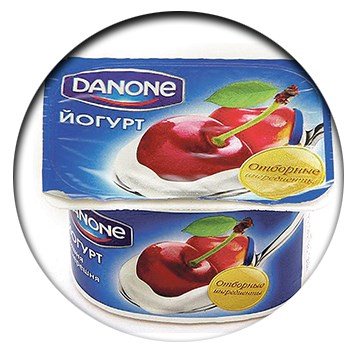
Danger level: medium. Contains many food additives, but too few lactic acid bacteria.
"Miracle" 2.5%
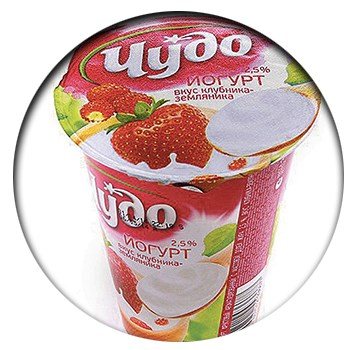
Danger level: medium. The number of beneficial lactic acid bacteria is 100 times less than indicated on the label.
"Frugurt" 2.5%
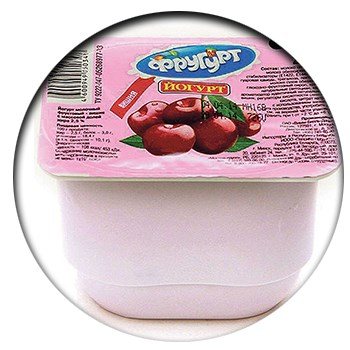
Danger level: maximum. The number of beneficial microorganisms does not correspond to what is indicated on the label. A large number of nutritional supplements.
Chocolate
None of the tested samples were blacklisted. Chocolate rating:
"A. Korkunov"

Advantages: natural, fatty acid composition corresponds to cocoa butter, does not contain palm kernel and coconut oil.
Disadvantages: There is more lead than in other tested samples.
"Golden Mark"
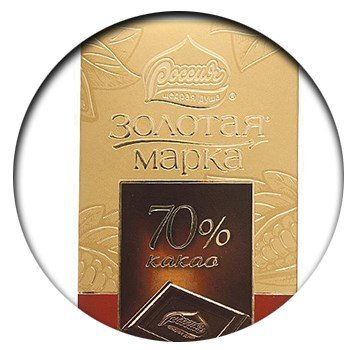
Advantages: safe, healthy, fatty acid composition corresponds to cocoa butter, does not contain palm kernel and coconut oil.
Disadvantages: high price.
"A priori"
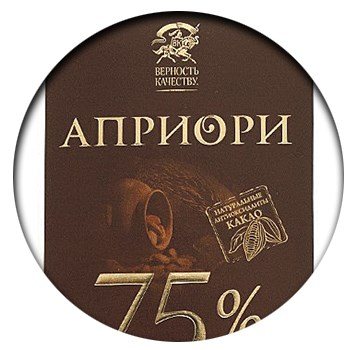
Advantages: safe, healthy, fatty acid composition corresponds to cocoa butter, does not contain palm kernel and coconut oil.
Disadvantages: high price.
Ritter Sport
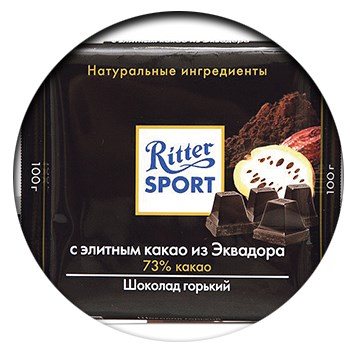
Advantages: safe, healthy, fatty acid composition corresponds to cocoa butter, does not contain palm kernel and coconut oil.
Disadvantages: high lead content compared to other samples.
And at this time
Products must not only be produced in accordance with all standards, but also properly stored and sold under special conditions.
In January 2020, the Rosselkhoznadzor Office conducted a scheduled inspection of the Belyovsky city market (Belyov, Sovetskaya St., 83).
The inspection revealed violations:
- no cleaning frequency
- the integrity of the floors and walls in the pavilion was damaged
- no knife sterilizers
- temperature conditions are not provided
- Regular waste disposal is not ensured
The market was fined 50,000 rubles.
numbers
63 samples of products and food raw materials in 2020 and January 2020 were tested at the Center for Hygiene and Epidemiology in the Tula Region for antibiotic content.
1 sample did not meet the standards.
35.1 tons of products and food raw materials were rejected in 2020 in the Tula region.
164 samples of dairy products were examined in the Tula region in 2020.
10.3 percent of them did not meet mandatory requirements.
The organization did not check Tula manufacturers. You can do this yourself. In the Tula region, goods are checked by the laboratory of the Tula Center for Standardization, Metrology and Certification.
Her address is Tula, st. Boldina, 91. 24-70-23, 24-70-24, 24-70-32, 22-36-80.
Time limits for Rospotrebnadzor inspections
The provided types of inspection are carried out within the time limits specially designated for this purpose.
Time of inspection by Rospotrebnadzor
| Name | Description | Duration of the procedure |
| Planned | the designated type of inspection is carried out every 3 years from the moment of formation of this or that organization providing services to the population. An exception in this case are medical institutions, since they are inspected after 2 years (medicine and educational institutions are inspected more often). The management of the organization or enterprise is required to be notified 3 days in advance | The total time allotted for inspection is 20 days, but if any inconsistencies or violations are found, the designated period can be extended by another 20 days |
| Unscheduled | does not have a designated schedule, since the reason for its implementation may be the presence of certain circumstances. For example, a written complaint, a statement from a consumer, an emergency caused by some kind of violation of a sanitary and epidemiological nature. It can be carried out at any time if a violation has occurred. But even in this case, the management of the inspected organization must be notified 1 day before the visit to Rospotrebnadzor employees | |
| Visiting | in a small enterprise no more than 50 hours; Individual entrepreneur - no more than 15 hours | |
As an addition, it is worth noting that Rospotrebnadzor employees have recently carried out inspections in the form of a risk-based approach. Its essence lies in the fact that, according to legislative acts, periods of control intensity are established, determined by the classification of the inspected person as engaged in activities associated with a risk category:
- extreme risk – once a year;
- high risk – once every two years;
- significant risk - once every three years;
- average risk – once every four years;
- moderate risk – once every 6 years;
- low level of risk - no scheduled checks are carried out.
Starting from 2020, Rospotrebnadzor will interact with responsible entrepreneurs through Internet services, where the latter will have to highlight their conscientious compliance with all standards set forth by law. Thanks to this, they are given the opportunity to move from one risk group to another. Thus, entrepreneurs can change the order of visiting the inspection body.
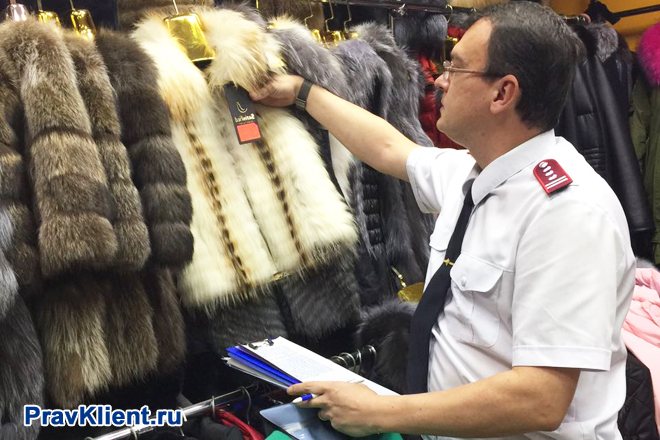
The conduct of inspections must necessarily be coordinated with the prosecutor's office, otherwise the actions of the experts will be considered unlawful and, accordingly, the inspection will be invalid.
What are the fines from Rospotrebnadzor?
In cases where Rospotrebnadzor employees identify deviations from norms or violations, the management of the inspected enterprise, organization, or institution may suffer one of the following types of punishment:
- warning;
- disciplinary;
- administrative in the form of payment of a fine in the amount of 20 to 200 thousand rubles;
- civil law;
- termination of activity for a period of 90 days;
- criminal liability if there has been a gross violation of the law, for example, the sale of alcohol to minors, the sale of counterfeit goods;
- removal from the position of a manager for a period of up to 3 years.
The type of liability and the amount of the fine directly depend on the severity of the detected violation of the person being inspected.
Is it possible to prepare for the test?
The question is very relevant, because visiting an inspection body is not always pleasant, even if all activities are carried out correctly. This is due to the fact that legislators quite often make changes and additions to regulations that clarify the criteria for the work of organizations that interact with citizens of the country. Particular attention is paid to enterprises with a high risk of injuries and threats to life, for example, mechanical engineering. Therefore, in order to be ready for a visit to the inspection body, you need to put all documentation in order in the given time, if there are any shortcomings. In addition, it is necessary to attract the help of the legal department of the enterprise, which can take into account all possible nuances and prepare explanations.
If there is an assumption that the audit may reveal something, then in order to prevent the possibility of prosecution, it is recommended to send an appeal to companies that have relevant experience in this matter. In a short time they can help you collect the necessary package of documents and point out any shortcomings or violations that need to be eliminated. But their services are paid, and not exactly cheap, so it is best to try not to violate the requirements specified in the legislation and comply with the norms. This, in turn, will allow you to avoid unscheduled inspections, as well as the detection of gross violations, which will lead to liability of a more serious nature.
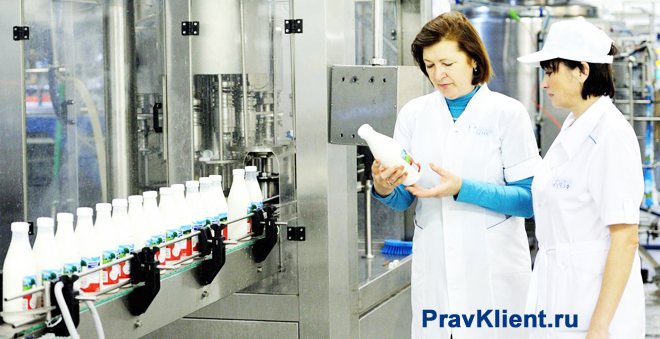
Unscheduled inspection of Rospotrebnadzor in 2020
Rospotrebnadzor will inspect the catering unit as planned along with the entire kindergarten. If the kindergarten's catering unit is given to a third-party organization that prepares food for children, then the commission will inspect this organization.
Conducted according to the schedule, the frequency of Rospotrebnadzor inspections is every 3 years (except for medical enterprises). Also, if the supervisory authorities have received a notification about new types of activities that require a commission.
The arbitrators sided with Rospotrebnadzor (resolution of the Federal Antimonopoly Service of the Volga Region dated November 7, 2008 No. A12-7383 / 08-C10).
The supervisory service, in case of detection of non-compliance with the requirements of the law, may take the following measures:
- issuing an order to correct detected violations
- imposition of fines for violations within the competence of the SES
- suspension of the entrepreneur’s activities for the period necessary to correct violations
- filing an application with the court (in case of a threat or accomplished fact of mass disease due to the fault of the enterprise)
At the catering unit, specialists will check the water supply. Rospotrebnadzor will check the serviceability of the equipment and the materials from which it is made, equipment and utensils, and the markings on them. They will see if the catering unit has an exhaust ventilation system above the stoves and washing baths, and will also inspect the storerooms.
It is important to know that Rospotrebnadzor can warn the administrations of organizations a day before arrival, and if there is a threat to a sanitary and epidemiological disaster, state interests, or consumers, Rospotrebnadzor may not warn the administration.
Checking is carried out by visual inspection. It also includes measurements of certain dimensions, as well as determining their compliance with current standards. Such grounds are directly stated in regulations and give Rospotrebnadzor the right to send its employees for inspection.
What is the probability of avoiding a Rospotrebnadzor inspection?
Inspections are carried out by the state supervisory service at enterprises, individual entrepreneurs, LLCs and other entities related to consumers. Most often, they are checked when certain circumstances occur, for example, complaints or claims from a consumer or local government official. The best option for a manufacturer or entrepreneur is to resolve the issue with the buyer directly on the spot, persuading him not to write a statement. That is, specify the reason for dissatisfaction, and if you disagree, issue a refund.
As for the question of how to avoid an unplanned inspection, it is best to conduct your business activities without violating the requirements specified in the legislation, to comply with the rules for the provision and provision of services of appropriate quality. It is very important to have all the necessary documentation, to comply with the conditions of production, storage (catering unit) and sale of manufactured products.
An innovation in the field of consumer protection is the Federal Law adopted on December 31, 2014. Article No. 2 states that an inspection of an enterprise, a company engaged in the sale of food products, as well as the provision of catering services, can be carried out without any warning at all. The same applies to retail outlets. This measure is considered a kind of prevention of compliance by retail outlets, buffets and other public catering outlets with sanitary and epidemiological standards if there have been reviews of inconsistency of the services provided.
Rospotrebnadzor food inspection
Without warning, an on-site inspection by state supervisory authorities may threaten any catering enterprise, manufacturer or organization selling food products.
These checks are intended to confirm or refute the facts, the violation of which is indicated in the complaint.
Scope of activity, classification of inspections, what Rospotrebnadzor checks, who can be checked, how often unscheduled inspections can be carried out. Penalties. Appealing the results of the inspection.
The agency is authorized to issue an order and also impose a fine. But there is an opportunity to avoid punitive measures; it is important to develop the right direction in work and interaction with inspectors.
